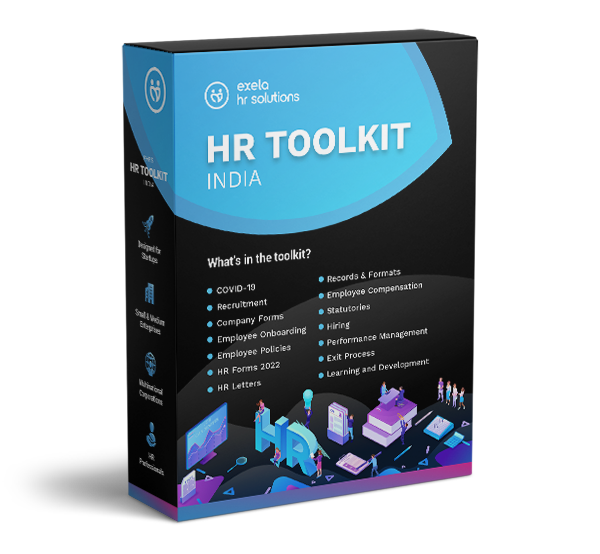
In the dynamic landscape of modern businesses, the spotlight shines brightly on company culture and employee loyalty like never before. As we venture into a new era of workforce dynamics, the significance of human resources management and the array of benefits a company provides have taken center stage.
These critical elements are key to a business's future success, forging a path toward enhanced productivity, engaged employees, and unparalleled growth.
The role of HR is not just an administrative function; it is a strategic driver that shapes the destiny of organizations and propels them toward a prosperous and sustainable future.
However, most SMEs often find themselves facing daunting challenges in areas like personnel management and human resources. Limited budgets hinder their ability to employ dedicated HR personnel, leaving them grappling with complex HR issues that require expert navigation.
As organizations grapple with complex HR responsibilities, turning to specialized HR service providers has become a compelling choice. However, the question that looms large is: What exactly does HR outsourcing cost? This blog uncovers the intricacies of factors influencing HR outsourcing costs and empowers employers with invaluable insights to make informed decisions for their businesses. Get ready to explore the realm of HR outsourcing and gain a deeper understanding of the investment required to unlock the true potential of your workforce.
How do companies price their outsourced HR services?
The pricing of outsourced HR services is a critical aspect that businesses and HR service providers consider carefully.
As we explore the pricing of outsourced HR services, you'll discover a diverse array of charging models employed by different companies. HR outsourcing providers may present you with the following options for their fees:
- Flat Fee by Service (Pay-as-you-go)
- Hourly Rate
- Per Pay Period
- Monthly Fee
- Annual Fee
- Per Employee Per Month
- A Percentage of Each Employee's Income
Regardless of the billing approach, it's crucial to note that your HR outsourcing costs will be influenced by several critical factors, including:
-
Service Scope and Customization:
HR service providers consider the range of services offered to a company. This includes HR administration, payroll processing, benefits management, recruitment, employee training, and more. The more comprehensive the services, the higher the overall cost is likely to be. Additionally, some providers offer tailored solutions, allowing businesses to select specific HR functions they require, resulting in a more personalized pricing structure.
-
Company Size and Employee Count:
The size of the company and the number of employees significantly impact the pricing of outsourced HR services. Larger organizations with more extensive HR needs may require higher levels of support, resulting in higher costs. Conversely, smaller businesses with fewer employees might opt for scaled-down HR services, which could lead to more budget-friendly options.
-
Complexity and Industry Specificity:
The complexity of HR processes and industry-specific compliance requirements also play a vital role in pricing. Industries with more intricate regulations, such as healthcare or finance, may require specialized expertise, leading to higher costs for tailored solutions that ensure compliance and mitigate risk.
-
Technology and Software Integration:
HR service providers often leverage advanced HR technology and software to streamline processes and enhance efficiency. The inclusion of such tools in the service package can influence pricing. Additionally, businesses might opt for specific HR software integrations based on their unique needs, contributing to the overall cost.
-
Service Level Agreements and Contract Terms:
The nature of the service level agreements (SLAs) and contract terms can impact pricing. Longer-term contracts or higher SLAs that guarantee faster response times and enhanced support might come with a higher price tag.
-
Additional Support and Consultation:
Some HR service providers offer additional support and consultation beyond the core services, such as HR strategy development, employee engagement programs, or leadership training. These value-added services can influence pricing based on their depth and scope.
Also read our latest blog: Recruitment Process Outsourcing: 8 Tips To Help Choose a Provider
What are the different HR outsourcing models?
There are several types of HR outsourcing models, each offering different levels of service and engagement. The common types of HR outsourcing models include:
-
Professional employer organization (PEO) outsourcing
In PEO outsourcing, an enterprise enters into a contractual agreement with an external firm, establishing a co-employment relationship. Under this arrangement, the service provider assumes the role of the employer of record, managing payroll and workplace taxes. Simultaneously, the business retains control over recruitment, terminations, and other day-to-day employee operational duties. To cover the expenses of the PEO and access their services, the company reimburses the costs and pays an additional service fee as agreed upon in the contract.
-
Administrative services organization (ASO) outsourcing
In HR outsourcing, the ASO (Administrative Services Outsourcing) model takes center stage. Within this model, the outsourcing partner assumes responsibility for managing all HR functions on behalf of the business as a third-party vendor. Unlike the PEO (Professional Employer Organization) model, the company retains its coveted employer of record status, with the outsourcing partner acting solely as a vendor, not a co-employer. Opting for the ASO model allows businesses to maintain direct connections with their employees while benefiting from the specialized expertise of an external HR services provider. This strategic approach ensures a seamless blend of in-house control and external support, empowering organizations to enhance HR efficiency and optimize workforce management.
-
Human resources organization (HRO) outsourcing
HR outsourcing (HRO) firms offer clients the advantage of tailor-made and flexible packages that can be personalized to meet specific requirements. For instance, a company may choose to engage an HRO for periodic employee skills training while concurrently entrusting them with other critical HR functions, such as payroll management and performance tracking. This dynamic approach allows organizations to leverage external expertise while still retaining control over certain aspects internally. Although HRO outsourcing is a viable option for large corporations with ample resources and capabilities to manage most HR functions internally, businesses of varying sizes can benefit from the versatility and efficiency that HRO firms bring to the table.
-
Software-as-a-Service (SaaS) HR outsourcing
In this particular approach, businesses leverage specialized software to automate and oversee critical HR functions. A third-party vendor or service provider typically provides the HR software. Opting for this model allows companies to enjoy enhanced flexibility and cost-effectiveness while retaining in-house control over their HR services. Some widespread instances of software as a Service (SaaS) HR outsourcing encompass payroll and benefits management, employee training, performance tracking, as well as applicant tracking systems (ATS).
-
Business process (BPO) HR outsourcing
In this particular approach, a company entrusts a specific HR function to an external third-party vendor. Differing from SaaS HR outsourcing, BPO HR outsourcing provides a more personalized touch and specialized expertise in targeted domains. This model proves to be the perfect fit for businesses seeking to outsource intricate HR functions, such as employee recruitment and benefits administration, where expert knowledge and customized support are paramount.
-
Single-source HR outsourcing
In this approach, a company delegates its entire HR operations to a single external service provider. This comprehensive model entails support for every phase of the employee lifecycle, encompassing talent acquisition, payroll, and benefits administration, attendance tracking, performance management, employee termination, training, upskilling, and all other HR functions. The primary advantage of this model lies in fostering a lasting partnership between the business and the HR services provider. Some service providers may extend their offerings to include additional services, such as bookkeeping and accounting, further assisting small businesses with their non-core processes.
Help Your Business Grow with Exela’s HR Outsourcing Solution
Simplifying businesses and alleviating HR professionals from tedious administrative burdens is a game-changer. Embracing Exela's HR solutions unlocks the power to streamline operations and concentrate on what truly matters - the invaluable workforce. Here's what you gain with Exela HR Solutions:
- Unprecedented productivity gains
- Substantial cost savings
- Unwavering compliance assurance
- Elevated service excellence
- A seamlessly streamlined HR framework
- An enriched employee experience that fosters growth and satisfaction.
Accelerate the growth of your business with Exela's comprehensive HR outsourcing solution. Embracing our cutting-edge services will empower your organization to unleash its true potential. By entrusting your HR functions to our experienced team, you can redirect valuable resources toward core business strategies, driving innovation and success. Get Exela HR Solutions for all your HR needs and unparalleled growth!
DISCLAIMER: The information on this site is for general information purposes only and is not intended to serve as legal advice. Laws governing the subject matter may change quickly, and Exela cannot guarantee that all the information on this site is current or correct. Should you have specific legal questions about any of the information on this site, you should consult with a licensed attorney in your area.





